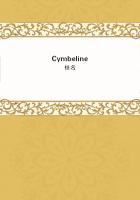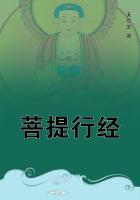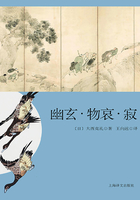Michael had been so engrossingly employed since his return to London in the autumn that the existence of other ties and other people apart from those immediately connected with his work had worn a very shadow-like aspect. He had, it is true, written with some regularity to his mother, finding, somewhat to his dismay, how very slight the common ground between them was for purposes of correspondence. He could outline the facts that he had been to several concerts, that he had seen much of his music-master, that he had been diligent at his work, but he realised that there was nothing in detail about those things that could possibly interest her, and that nothing except them really interested him. She on her side had little to say except to record the welfare of Petsy, to remark on the beauty of October, and tell him how many shooting parties they had had.
His correspondence with his father had been less frequent, and absolutely one-sided, since Lord Ashbridge took no notice at all of his letters. Michael regretted this, as showing that he was still outcast, but it cannot be said to have come between him and the sunshine, for he had begun to manufacture the sunshine within, that internal happiness which his environment and way of life produced, which seemed to be independent of all that was not directly connected with it. But a letter which he received next morning from his mother stated, in addition to the fact that Petsy had another of her tiresome bilious attacks (poor lamb), that his father and she thought it right that he should come down to Ashbridge for Christmas. It conveyed the sense that at this joyful season a truce, probably limited in duration, and, even while it lasted, of the nature of a strongly-armed neutrality, was proclaimed, but the prospect was not wholly encouraging, for Lady Ashbridge added that she hoped Michael would not "go on" vexing his father. What precisely Michael was expected to do in order to fulfil that wish was not further stated, but he wrote dutifully enough to say that he would come down at Christmas.
But the letter rekindled his dormant sense of there being other people in the world beside his immediate circle; also, indefinably, it gave him the sense that his mother wanted him. That should be so then, and sequentially he remembered with a pang of self-reproach that he had not as much as indicated his presence in London to Aunt Barbara, or set eyes on her since their meeting in August. He knew she was in London, since he had seen her name in some paragraph in the papers not long before, and instantly wrote to ask her to dine with him at a near date. Her answer was characteristic.
"Of course I'll dine with you, my dear," she wrote; "it will be delightful. And what has happened to you? Your letter actually conveyed a sense of cordiality. You never used to be cordial. And I wish to meet some of your nice friends. Ask one or two, please--a prima donna of some kind and a pianist, I think. I want them weird and original--the prima donna with short hair, and the pianist with long. In Tony's new station in life I never see anybody except the sort of people whom your father likes. Are you forgiven yet, by the way?"Michael found himself on the grin at the thought of Aunt Barbara suddenly encountering the two magnificent Falbes (prima donna and pianist exactly as she had desired) as representing the weird sort of people whom she pictured his living among, and the result quite came up to his expectations. As usual, Aunt Barbara was late, and came in talking rapidly about the various causes that had detained her, which her fruitful imagination had suggested to her as she dressed. In order, perhaps, to suit herself to the circle in which she would pass the evening, she had put on (or, rather, it looked as if her maid had thrown at her) a very awful sort of tea-gown, brown and prickly-looking, and adapted to Bohemian circles. She, with the same lively imagination, had pictured Michael in a velveteen coat and soft shirt, the pianist as very small, with spectacles and long hair, and the prima donna a full-blown kind of barmaid with Roman pearls. . . .
"Yes, my dear, I know I am late," she began before she was inside the door, "but Og had so much to say, and there was a block at Hyde Park Corner. My dear Michael, how smart you look!"She came round the corner of the screen and the Falbes burst upon her, Hermann and Sylvia standing by the fire. For the short, spectacled pianist there was this very tall, English-looking young man, upright and soldierly, with his handsome, boyish face and well-fitting clothes. That was bad enough, but infinitely worse was she who was to have been the full-blown barmaid. Instead was this magnificent girl, nearly as tall as her brother, with her small oval face crowning the column of her neck, her eyes merry, her mouth laughing at some brotherly retort that Hermann had just made. Aunt Barbara took her in with one second's survey--her face, her neck, her beautiful dress, her whole air of ease and good-breeding, and gave a despairing glance at her own prickly tea-gown.
For the moment, amiably accustomed as she was to laugh at herself, she did not find it humourous.
"Miss Sylvia Falbe, Aunt Barbara," said Michael with a little tremor in his voice; "and Mr. Hermann Falbe, Lady Barbara Jerome,"he added, rather as if he expected nobody to believe it.
Aunt Barbara made the best of it: shook hands in her jolly manner, and burst into laughter.
"Michael, I could slay you," she said; "but before I do that I must tell your friends all about it. This horrible nephew of mine, Miss Falbe, promised me two weird musicians, and I expected--I really can't tell you what I expected--but there were to be spectacles and velveteen coats and the general air of an afternoon concert at Clapham Junction. But it is nice to be made such a fool of. Ifeel precisely like an elderly and sour governess who has been ordered to come down to dinner so that there shan't be thirteen.















